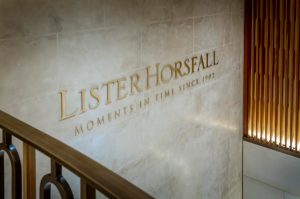Pre-Budget Report: Reaction

TODAY’S pre-budget report (PBR) has provoked a mixed response from industry groups and business leaders with some disappointed over a lack of initiatives designed to help firms emerge from the recession.
Steve Radley, director of policy for manufacturing body EEF, said that the PBR failed to highlight how the economy would be re-balanced.
“The job of today’s statement was to outline how the structural shortfall in the public finances was going to be tackled. Instead it went for the easy targets and fudged the tough decisions necessary to achieve this,” he said.
“We also needed to see tangible action to begin re-balancing our economy. However there were only limited measures which are unlikely to drive broad-based growth.”
Mr Radley said while there were some helpful measures such as deferring the increase in corporation tax for small firms, the the failure to extend capital allowances for investment removes support at just the time in the cycle when firms could most benefit.
“Business will now be faced with a further six months of uncertainty as to how the Chancellor plans to tackle the deficit,” he added.
Andrew Palmer, CBI regional director for Yorkshire, said: “The Chancellor has made a serious mistake imposing an extra jobs tax at a time when the economic recovery will still be fragile. Increasing the National Insurance contribution will hold back job creation and growth.
“He has also missed the opportunity to increase the UK’s credibility by reducing the public deficit earlier. We are no clearer today as to how the Government plans to reduce public expenditure.
“A headline-grabbing tax on bankers’ bonuses may have populist appeal, but the government needs to take care not to put the UK’s financial services sector at a comparative disadvantage internationally. The threat of an exodus of talent is real.”
Martin McKervey, a partner at the Sheffield office of national law firm Nabarro, said the announcements were positive for South Yorkshire.
“South Yorkshire’s re-emergence as a manufacturing powerhouse and the region’s ability to attract Government departments relocating from London will enable the local economy to benefit from the Chancellor’s pre-budget statement today,” he said.
“Despite the public spending cuts that must surely follow the escalation in borrowing South Yorkshire can look ahead with optimism thanks to our revitalised manufacturing sector and our track record in attracting Government agencies looking to reduce budgets by leaving London.”
Mr McKervey said efforts to push forward the manufacturing sector and attract government departments to relocate to South Yorkshire must be doubled.
Meanwhile, the Federation of Small Businesses (FSB) welcomed measures by the Chancellor to give small businesses a helping hand by extending finance to small firms and calling off a 1p rise in small companies’ Corporation Tax in his pre-budget report.
It said extending the £1.3bn Enterprise Finance Guarantee fund for businesses looking for new finance – a victory for the FSB last year- was a welcome step the FSB has called for and shows that the Government has been listening to small firms’ finance needs.
However, the FSB said it was disappointed that the budget was not focused on providing incentives or assistance to the smallest firms that want to take on more staff and so tackle the rising problem of unemployment.
It added that going ahead with the proposed 0.5% increase in employers’ National Insurance Contributions would not encourage job creation within the small firm sector.
Martin Cuthbert, FSB regional chairman said: “The Government has missed a chance to really tackle a difficult credit market by failing to create more options for access to finance, and more competition among high street banks.
“The Government should have addressed this challenge and looked at options such as a regional stock exchange to help small and fast growing businesses capture finance.”
He added: “Lowering tax to 10 per cent on all profits derived from patents is good news for innovative businesses and will encourage entrepreneurialism.”
Jo Clarkson, operations director of Harrogate-based The Alternative Board, said that most of what the Chancellor said regarding SMEs and owner-managers was just window dressing and would not have a significant effect on their businesses.
“However, the real impact will come through the forecast spending cuts.The large numbers of SMEs that rely on the public sector in any way – as suppliers to the public sector or as users of public finance for things like training, marketing or other grant-based activity – are really going to suffer.
“It is clear that the Government is going to turn off the taps, so those SMEs who anticipated this and developed new markets are the ones who are best placed to weather the next year or two.”
Gary Lumby, president of Leeds Chamber of Commerce said: “The Chancellor had the difficult decision to decide between whether the pre-budget report should focus on encouraging economic growth or reducing the huge public deficit through spending cuts and tax hikes, and while it is encouraging to see that he avoided the ‘slash and burn approach, the Chamber feels that more could have been done to promote growth.
“The extension of the Enterprise Finance Guarantee and the deferred increase in corporation tax, is a measure that will be welcomed by small businesses, many of whom feel that they have been previously neglected by the Government, however it is disappointing that the Chancellor ignored calls from the Chamber and is continuing with the planned increase in employer/employee National Insurance contributions, as we feel this could have a potentially negative effect on business growth, particularly for those businesses still struggling with costs as a result of this recession.”
He said it was disappointing that the Chancellor would not be extending the 15% VAT rate past the New Year and until the economy shows definite signs of recovery.
“Changing the rate back to 17.5% can be a costly process for struggling retailers and it is felt that there has not been enough time for the previous rate reduction to have any real affect on the economy,” Mr Lumby added.
On the Empty Property Rate relief he said it was encouraging to see the threshold extended for another year but added that further long-term measures needed to be introduced.
According to Michael Carter, a partner at law firm Addleshaw Goddard, attention should focus away from the bank payroll tax and move instead to the increase in National Insurance (NIC) contributions.
“The announcement will, when added to those previously announced, mean that employer’s NIC will rise from 12.8% to 13.8% and employee’s rate will rise by 1% from April 6, 2011,” he commented.
“These changes will apply to all employers and employees who pay NIC essentially those earning more than £97 per week. This will mean that, for example, those employees on incomes more than £150,000 will see their marginal rates for income tax and NIC rising from 41% now to 52%.”
He continued: “This is an additional tax burden on employers and employees, which was not highlighted by The Chancellor in his speech.
“NIC is again being used as an easy means of raising tax income from employers and employees.”
Arshad Chaudhry, chairman of ABDN, disagrees that the Enterprise Finance Guarantee scheme has made an impact and believes that the Chancellor needs to bring in a policy that makes a real impact and finance starved businesses get the money they need to develop.
“It is important to introduce incentives for innovation in business by tax breaks and by providing support through Business Links,” he added.
“Encouraging businesses out of saturated retail markets and into knowledge based businesses by the use of similar incentives will help harness the entrepreneurial flair of BAME businesses and help UK plc beat the recession.”
Environmental incentives however could prove a driver as Andrew Cope, chief executive of Zenith Provecta, pointed out.
He said that although 100% electric vans were currently not a viable option the introduction of car tax initiatives would incentivise industry.
“It is a longer-term initiative but at the end of the day it comes down to cost and if firms can find a way of cutting them they will,” he said.
Richard Kendall, policy executive at Hull & Humber Chamber of Commerce, said: “Some of the Pre-Budget Report is good news for business. Deferring the increase in corporation tax for small companies and extending the time to pay scheme are welcome measures. The extension of the Enterprise Finance Guarantee scheme is also positive, but take-up so far has been low and it needs to be much easier for businesses to access. Many companies are still struggling to borrow money, despite the Government’s support of the banks.
Bradford Chamber president, Harold Robinson, said: “We said that the economic predictions in April were way off and, with a sharp revision for the downturn in 2009, that’s proved to be the case. Tackling public finances remains a massive problem and whoever gets into government next year will have a tough time.
“Some of the business support measures, while not massive in themselves, could be useful to help many firms. More ‘time to pay’, deferring the corporation tax rise (although it should have been removed altogether) and extending the holiday on empty property rates (again, removal would have been better) are all welcomed.”
What do you think of today’s announcement? Please leave your comments below.







